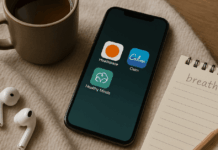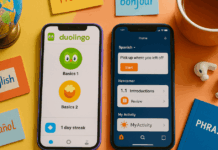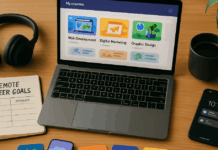Technology shapes nearly every career path, study routine, and social interaction worldwide. Strengthening digital know-how today equips you for smoother learning, safer online experiences, and a more competitive professional future.
The skills below cover marketing, creativity, technical fluency, and personal finance, giving you a rounded toolkit for the decade ahead.
1. Social Media Marketing
Mastering social platforms lets you build audiences, showcase projects, and understand how brands communicate at scale. An early grasp of these channels pays off in internships, freelance gigs, and personal networking.
Why it matters
Growing a community on LinkedIn, TikTok, or The Dots helps you secure referrals, showcase your creativity, and maintain visibility to recruiters worldwide.
Starting with the basics:
- Map out a personal brand theme, then post consistently on two channels rather than scattering attention.
- Study short courses on Skillshare or FutureLearn that cover campaign strategy, analytics, and content calendars.
- Track engagement data weekly to learn what formats and posting times resonate best.
2. Digital Citizenship and Online Safety
Responsible online behavior protects reputation, mental health, and data. Knowing community guidelines and safety controls shields you from cyberbullying, scams, and privacy threats.
Why it matters
Employers often review social profiles before interviews, and universities assess digital footprints for scholarship selections.
Starting with the basics:
- Review platform rules on Instagram, Discord, and Threads, noting each site’s reporting tools.
- Practice two-factor authentication and strong password habits using a dedicated password manager.
- Explore SaferInternet.org resources on misinformation, deepfakes, and respectful discourse.
- Set personal screen-time boundaries and sort notifications so focus sessions remain interruption-free.
3. Search Engine Marketing (SEM) and SEO
Search engines start nearly every online journey, so understanding their logic helps you lift websites and portfolios above the noise. Paid ads and organic ranking share overlapping best practices and boost digital visibility.
Why it matters
Companies hire entry-level assistants who can write meta tags, run keyword research, and analyze click-through data—tasks teens can learn quickly and perform remotely.
Starting with the basics:
- Complete beginner modules on SEMrush Academy covering keyword intent, quality scores, and bidding basics.
- Launch a personal blog on a free platform, then optimize articles for three target key phrases each.
- Monitor Google Search Console impressions weekly to connect content tweaks with ranking changes.
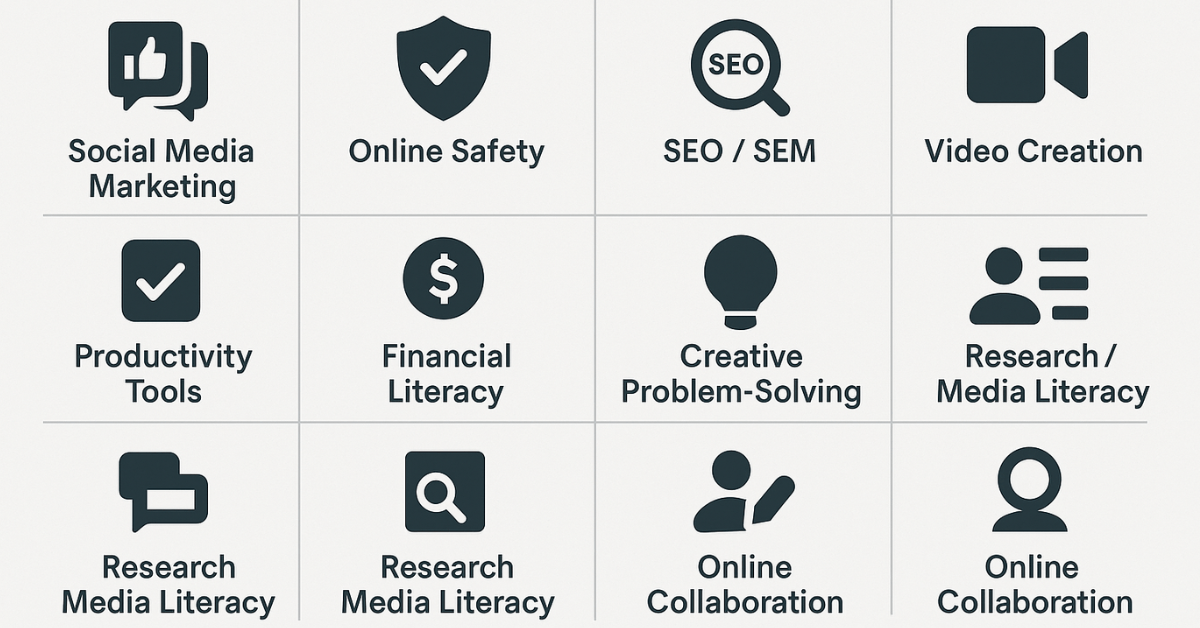
4. Video Creation and Multimedia Storytelling
Video dominates feed algorithms and captures complex ideas faster than text. Skills in filming, editing, and titling expand career options from journalism to e-commerce.
Why it matters
Hiring managers value creators who can storyboard concepts, trim clips efficiently, and add captions that boost retention.
Starting with the basics:
- Test simple edits in iMovie or CapCut, focusing on tight cuts rather than flashy effects.
- Enroll in an affordable Udemy course about lighting, audio leveling, and aspect-ratio optimization.
- Assemble a thirty-second “sizzle reel” that highlights school projects, volunteer events, or passion hobbies.
- Seek critiques from peers and refine transitions, color grading, and pacing.
5. Coding and Computational Thinking
Programming teaches logical reasoning and problem decomposition—traits prized far beyond software teams. Even basic scripts automate tasks and spark confidence when confronting unfamiliar tech.
Why it matters
Many entry-level research, design, and operations roles list Python, HTML, or SQL as “nice to have” skills that accelerate promotion potential.
Starting with the basics:
- Follow free video playlists such as MyTutor’s Coding Squad or CodeFirstGirls beginner series.
- Build a small game or calculator on Scratch, then rewrite it in JavaScript for practice translating logic.
- Adopt version control early with GitHub repositories, writing clear commit messages for future collaboration.
- Join hackathons or online code-along events to troubleshoot in real time and absorb peer techniques.
6. Core Tech Fluency (Productivity Suite)
Fast keyboarding, file management, and document formatting keep assignment workloads under control and impress supervisors who expect polished outputs.
Why it matters
Slow typing or messy file structures waste homework hours and delay workplace projects, whereas strong fundamentals free energy for higher-level thinking.
Starting with the basics:
- Maintain a 50-plus words-per-minute typing speed using proper hand placement.
- Organize cloud folders by project and date to quickly locate assets.
- Format long papers with styles, headings, and automated tables of contents.
- Use spreadsheet formulas—SUM, AVERAGE, VLOOKUP—to analyze survey data.
- Create clear slide decks that balance text, visuals, and speaker notes.
7. Financial Literacy and Goal-Setting
Earning power only stretches so far without budgeting knowledge and clear milestones. Learning basic finance early prevents debt traps and supports entrepreneurial dreams.
Why it matters
Freelance creators and gig workers need to invoice clients, forecast cash flow, and handle taxes—tasks easier when fundamentals feel familiar.
Starting with the basics:
- Draft a simple monthly budget that allocates earnings into saving, spending, and donating categories.
- Watch FutureLearn modules on credit scores, interest compounding, and safe investing fundamentals.
- Apply SMART goal templates to map quarterly targets such as “Save €300 toward a coding boot camp.”
- Use task-management apps to schedule study blocks, client outreach, and portfolio updates.
8. Creativity and Problem-Solving Through Digital Projects
Innovative thinking separates formulaic output from standout work. Blending design tools, data analysis, and storytelling approaches helps you craft solutions that resonate worldwide.
Why it matters
Employers seek adaptable minds that experiment, learn from errors, and iterate fast—qualities nurtured by multimedia challenges and coding puzzles.
Project ideas:
- Visualize climate-change data in an interactive dashboard, then share insights on social channels.
- Produce a short documentary highlighting community initiatives, integrating subtitles for accessibility.
- Code a micro-donation widget that redirects audience appreciation toward verified charities.
9. Research and Media Literacy
Internet content floods screens nonstop, and discerning reliable sources guard against misinformation. Evaluating evidence and spotting bias lets you stand out in group discussions and academic submissions.
Why it matters
Scholarship committees and global employers highly regard candidates who support claims with credible data and cite appropriately.
Starting with the basics:
- Compare results across three search engines; note how algorithms rank pages differently.
- Use advanced query operators—quotation marks, minus signs, site:domain—to refine searches.
- Verify author credentials, publication dates, and reference lists before sharing articles.
- Summarize findings in annotated bibliographies to strengthen critical-thinking muscles.
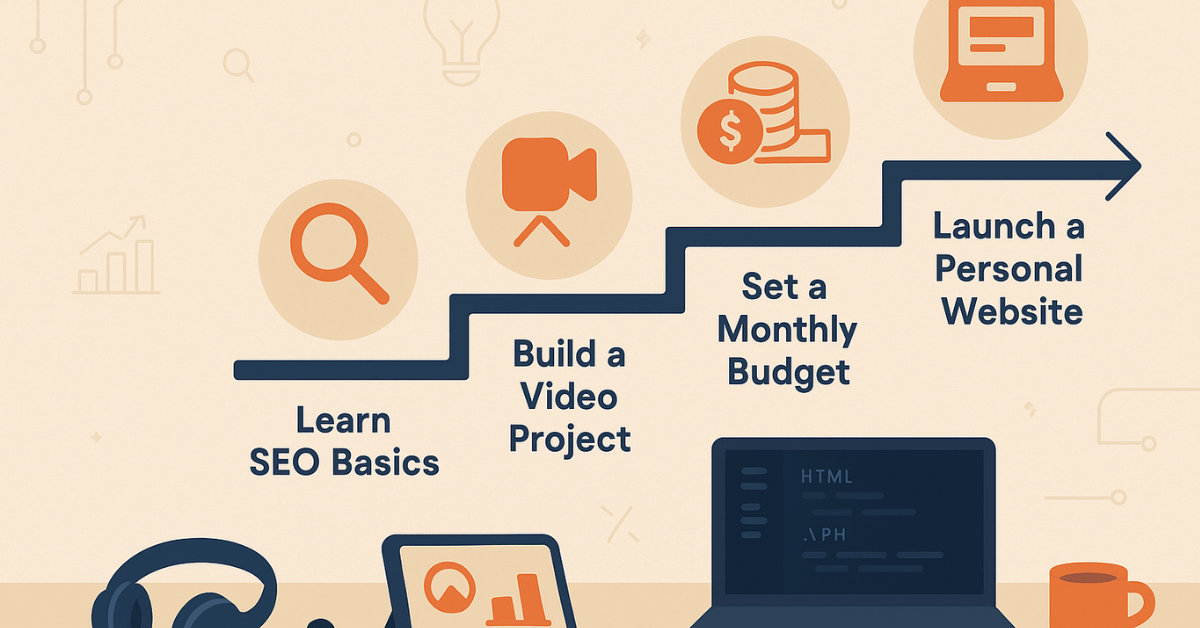
10. Collaboration and Online Communication
Digital teamwork spans time zones and cultures. Smooth collaboration tools and respectful messaging keep projects on schedule and friendships intact.
Why it matters
Remote internships and extracurricular clubs depend on asynchronous edits, video calls, and quick status updates.
Starting with the basics:
- Select the right medium—chat for quick clarifications, email for formal proposals, and shared documents for joint drafts.
- Use concise subject lines and bullet summaries in emails to speed comprehension.
- Track version history in collaborative suites so contributors know who changed what.
- Set ground rules for response times and feedback tone to avoid misunderstandings.
Conclusion
Building digital expertise is less about mastering everything at once and more about choosing one area, practicing deliberately, and then stacking new competencies over time.
Prioritize the skills that align with upcoming coursework, side hustles, or creative passions, and schedule regular checkpoints to measure growth.
Consistent progress will position you for worldwide study programs, remote roles, and entrepreneurial ventures long before full-time employment begins.

